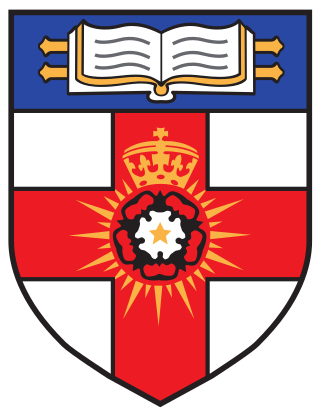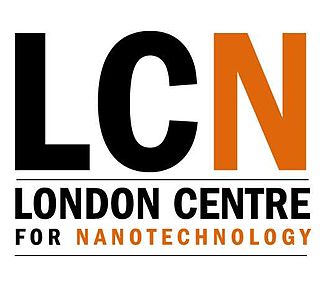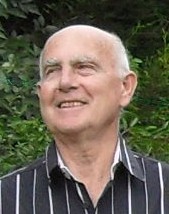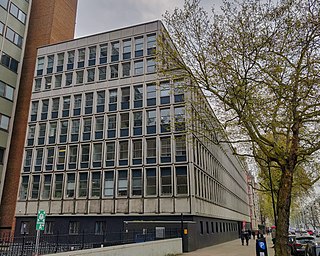University College London, which operates as UCL, is a public research university in London, England. It is a member institution of the federal University of London, and is the second-largest university in the United Kingdom by total enrolment and the largest by postgraduate enrolment.

The University of London is a federal public research university located in London, England, United Kingdom. The university was established by royal charter in 1836 as a degree-awarding examination board for students holding certificates from University College London, King's College London and "other such institutions, corporate or unincorporated, as shall be established for the purpose of Education, whether within the Metropolis or elsewhere within our United Kingdom". It is one of three institutions to have advertised themselves as the third-oldest university in England. It moved to a federal structure with constituent colleges in 1900. It is now incorporated by its fourth (1863) royal charter and governed by the University of London Act 2018.

Brunel University London is a public research university located in the Uxbridge area of London, England. It was founded in 1966 and named after Isambard Kingdom Brunel, the Victorian engineer and pioneer of the Industrial Revolution. In June 1966, Brunel College of Advanced Technology was awarded a royal charter and became Brunel University; in 2014 the university formally adopted the name Brunel University London (BUL). The university is considered a British plate glass university.
The Engineering and Physical Sciences Research Council (EPSRC) is a British Research Council that provides government funding for grants to undertake research and postgraduate degrees in engineering and the physical sciences, mainly to universities in the United Kingdom. EPSRC research areas include mathematics, physics, chemistry, artificial intelligence and computer science, but exclude particle physics, nuclear physics, space science and astronomy. Since 2018 it has been part of UK Research and Innovation, which is funded through the Department for Business, Energy and Industrial Strategy.
The Doctor of Engineering is a professional doctorate in engineering and applied science. An EngD is a terminal degree similar to a PhD in engineering but applicable more in industry rather than in academia. The degree is usually aimed toward working professionals.

The Institute of Materials, Minerals and Mining (IOM3) is a UK engineering institution whose activities encompass the whole materials cycle, from exploration and extraction, through characterisation, processing, forming, finishing and application, to product recycling and land reuse. It exists to promote and develop all aspects of materials science and engineering, geology, mining and associated technologies, mineral and petroleum engineering and extraction metallurgy, as a leading authority in the worldwide materials and mining community.

The London Centre for Nanotechnology is a multidisciplinary research centre in physical and biomedical nanotechnology in London, United Kingdom. It brings together three institutions that are world leaders in nanotechnology, University College London, Imperial College London and King's College London. It was conceived from the outset with a management structure allowing for a clear focus on exploitation and commercialisation. Although based at UCL's campus in Bloomsbury, the LCN includes research in departments of Imperial's South Kensington campus and in King's Strand campus.

Griffith College Limerick (GCL) is a private third level college in Limerick, Ireland. The college was established in 2006 when the Mid West Business Institute was acquired by Griffith College Dublin. The college runs full-time and part-time courses in accountancy, business, law, engineering, computing, and information technology, and has a range of part-time courses available.

Nanchang University is a provincial public university in Nanchang, Jiangxi, China. It is affiliated with the Jiangxi Provincial Government, and co-sponsored by the Jiangxi Provincial Government and the Ministry of Education of China. The university is part of the Double First Class University Plan and Project 211.

The Faculty of Engineering is the engineering school of Imperial College London, and one of the three main faculties the college. It was formed in 2001 from the former City and Guilds College and the Royal School of Mines—two of the three original constituent colleges of Imperial College when the latter was formed in 1907. The faculty is ranked as the top engineering institute in the UK in the 2021 Research Excellence Framework.
The UCL Faculty of Engineering Sciences is one of the 11 constituent faculties of University College London (UCL). The Faculty, the UCL Faculty of Mathematical and Physical Sciences and the UCL Faculty of the Built Envirornment together form the UCL School of the Built Environment, Engineering and Mathematical and Physical Sciences.
The UCL Faculty of Mathematical and Physical Sciences is one of the 11 constituent faculties of University College London (UCL). The Faculty, the UCL Faculty of Engineering Sciences and the UCL Faculty of the Built Envirornment together form the UCL School of the Built Environment, Engineering and Mathematical and Physical Sciences.

Molly Morag Stevens is Professor of Biomedical Materials and regenerative medicine and Research Director for Biomedical Materials Sciences in the Institute of Biomedical Engineering at Imperial College London.
Bashar Ahmad Nuseibeh, is a professor of computing at The Open University in the United Kingdom, a professor of software engineering at the University of Limerick in Ireland, and chief scientist of Lero, the Irish Software Research Centre. He is also an honorary professor at University College London (UCL) and the National Institute of Informatics (NII), Japan.

Paul O'Brien was professor of Inorganic Materials at the University of Manchester. where he has served as head of the School of Chemistry from 2004 to 2009 and head of the School of Materials from 2011 to 2015. He died on 16 October 2018 at the age of 64.

Thomas Benjamin Britton is a materials scientist and engineer based at The University of British Columbia. He is a specialist in micromechanics, electron microscopy and crystal plasticity. In 2014 he was awarded the Silver Medal of the Institute of Materials, Minerals and Mining (IOM3), a society of which he then became a Fellow in 2016.

Kenneth Claughan Mills, was head of the Slags group at the National Physical Laboratory and a visiting professor in the Department of Materials at Imperial College London.

The Department of Computing (DoC) is the computer science department at Imperial College London. The department has around 50 academic staff and 1000 students, with around 600 studying undergraduate courses, 200 PhD students, and 200 MSc students. The department is predominantly based in the Huxley Building, 180 Queen's Gate, which it shares with the Maths department, however also has space in the William Penney Laboratory and in the Aeronautics and Chemical Engineering Extension. The department ranks 7th in the Times Higher Education 2020 subject world rankings.

The history of Imperial College London can be traced back to the founding of the Royal College of Chemistry in 1845 in London, with some ancestral medical schools dating back to 1823. The college was formed in 1907 out of the Royal Colleges in South Kensington, and throughout the 20th century became central to the national strategy for technical education and research. It existed for most of its life as part of the University of London, only becoming independent in 2007.
Sandrine Elizabeth Monique Heutz is a Professor of Functional Molecular Materials at Imperial College London. She works on organic and magnetically coupled molecular materials for spintronic applications. In 2008 Heutz was awarded the Institute of Materials, Minerals and Mining Silver Medal.












